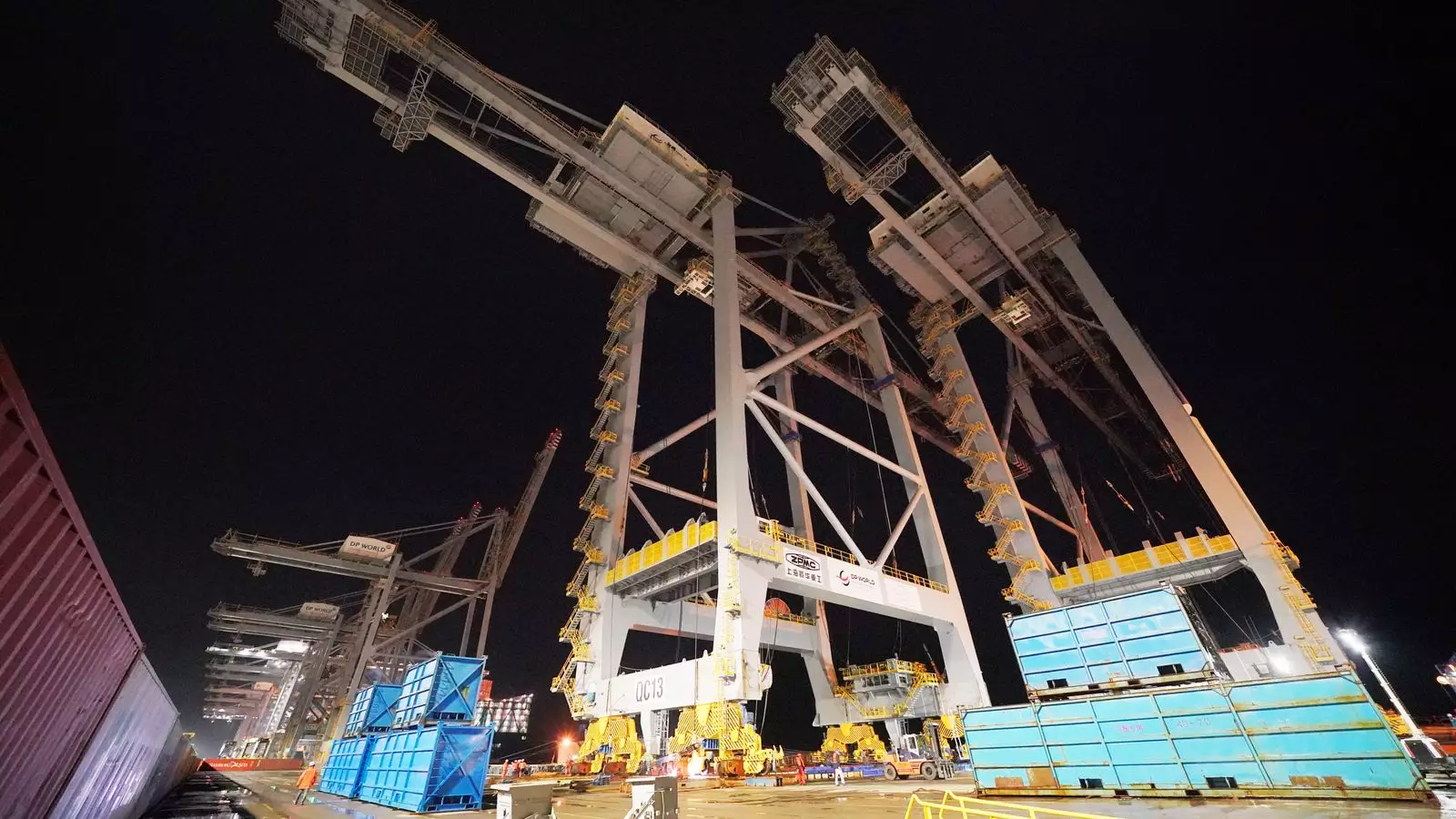In a high-stakes political environment, the UK government navigated tumultuous waters to secure a £1 billion investment announcement from DP World, a Dubai-based logistics operator and owner of P&O Ferries. The recent debacle was precipitated by controversial remarks made by Transport Secretary Louise Haigh, who labeled the shipping company a “rogue operator” and incited consumer boycotts against it. This incident exposes the tenuous balance that governments must maintain between rhetoric and investment, as public officials must carefully navigate the nuances of language to avoid jeopardizing crucial financial commitments.
On Sunday Morning With Trevor Phillips, Business and Trade Secretary Jonathan Reynolds addressed the situation by admitting that the government had to engage in “conversation” to mitigate the potential fallout from Haigh’s statements. This admission emphasizes how critical diplomacy is within the sphere of economic relations, particularly concerning foreign investments, which are essential for the UK’s economic recovery post-pandemic. When questioned about the potential repercussions of Haigh’s comments, Reynolds was cautious, emphasizing that the investment commitment from DP World is “going ahead,” albeit after necessary discussions to clear the air.
The Fallout of P&O Ferries Controversy
The backdrop to this investment dilemma, of course, is the tumultuous history of P&O Ferries, which became a centerpiece of national controversy back in March 2022 when the company made headlines for laying off 800 British staff members and replacing them with lower-paid foreign workers. The rationale provided by the company—preventing its financial collapse—failed to resonate with many, stoking outrage and leading to public backlash against the organization. This incident is illustrative of the broader challenges that international companies face when attempting to operate within different regulatory and social frameworks.
The crux of the problem lies in the intersection of economic pragmatism and social responsibility. On one hand, companies like DP World are navigating a complex landscape where global competition demands cost-cutting measures, while on the other hand, they face significant public backlash for implementing such decisions. The UK government, in securing the investment deal, is demonstrating its interest in foreign capital while also having to contend with domestic backlash stemming from corporate actions that diverge from public sentiment about labor practices.
Investment Summit and Political Implications
The decision to allow the investment to proceed aligns with broader governmental efforts to push the UK towards economic revitalization. With an investment summit scheduled imminently, originally announced in August, the sequence of events becomes even more crucial as it strives to draw in substantial industry interest. The skepticism around the timing of the summit—occurring just weeks before the national budget—is emblematic of a larger strategy to showcase the government’s commitment to attracting foreign investments at a time when economic stability is a pressing concern.
Reynolds faced further scrutiny over the absence of notable figures like Elon Musk at this investment summit, which called into question the government’s outreach to entrepreneurs who have the potential to significantly influence the UK’s financial trajectory. The Secretary refrained from commenting on Musk specifically, which could be interpreted as a defensive maneuver to downplay any implications tied to personal relationships rather than focusing on the collective benefit of the summit itself. This incident speaks to the delicate dance that political figures must engage in when discussing individual influencers—balancing the public’s expectation for transparency while avoiding commentary that could pivot an event’s purpose into a spectacle.
Ultimately, this scenario surrounding DP World’s investment commitment encapsulates the complexities of modern governance. Political dialogue must constantly evolve to forge the tight connections necessary for attracting foreign investment while strategically navigating domestic public sentiment. The intertwining of economic stakes and media narratives underscores the importance of thoughtful communication from government leaders, reinforcing that while economic commitments are essential, the implications of political statements can reverberate far beyond their immediate intention. This case exemplifies how critical it is for governments to engage in proactive and constructive dialogue, ensuring that vital investments are not jeopardized by political missteps.



Leave a Reply